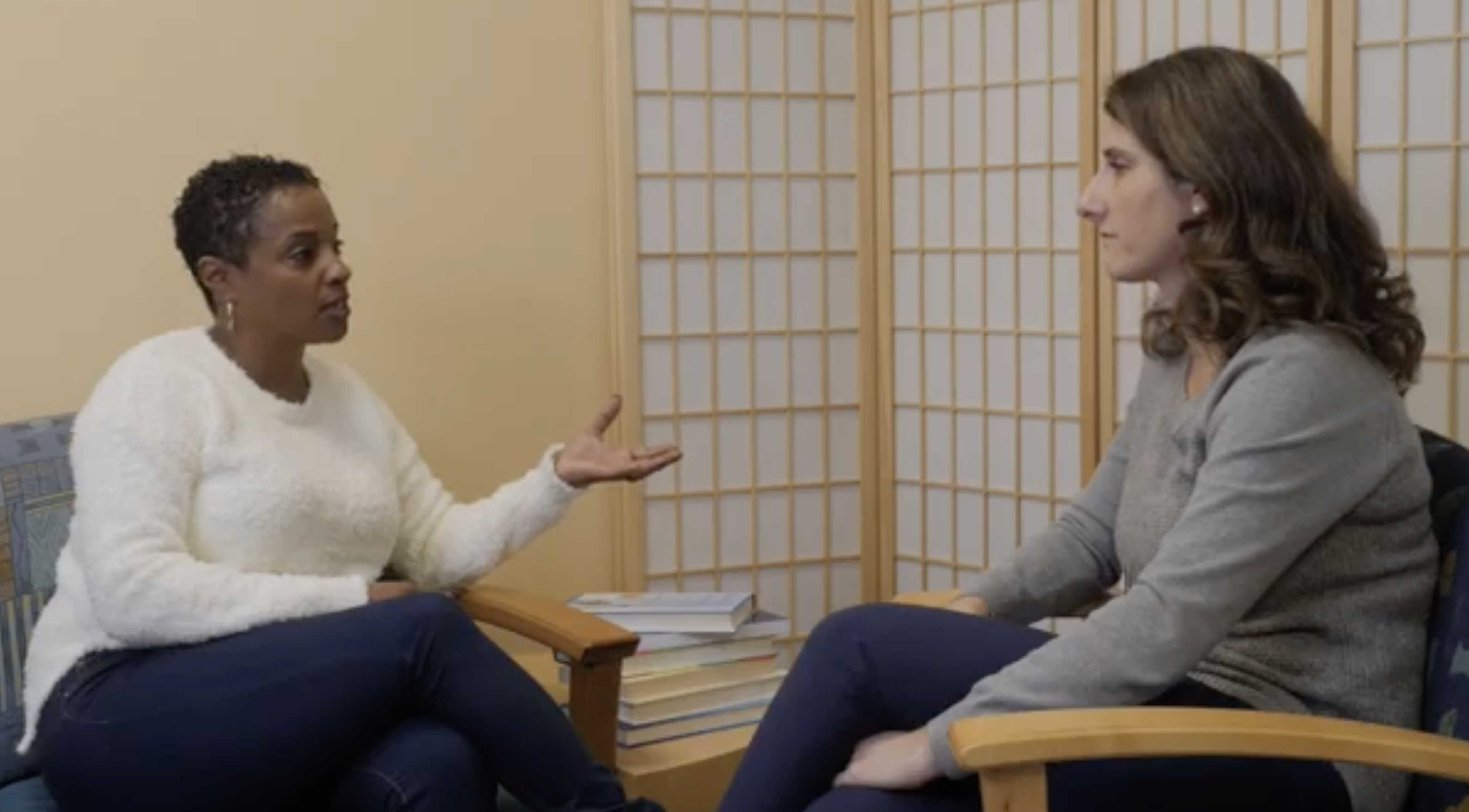-
 A physician’s advice for parents who feel they are experiencing bias or discriminationvideo
A physician’s advice for parents who feel they are experiencing bias or discriminationvideo -
 Perinatal palliative care “got to know us and really heard our hearts. They counseled us through the birth practices.”video
Perinatal palliative care “got to know us and really heard our hearts. They counseled us through the birth practices.”video -
 Marginalized populations struggle to be seen and heard. They have to fight that fight first before they can be seen as parents.video
Marginalized populations struggle to be seen and heard. They have to fight that fight first before they can be seen as parents.video -
 A pediatrician on how clinicians can help families feel seen and heard: 1) accept our unconscious bias and 2) listenvideo
A pediatrician on how clinicians can help families feel seen and heard: 1) accept our unconscious bias and 2) listenvideo -
 The palliative care team would ask us, “How do you feel about what you just heard?”video
The palliative care team would ask us, “How do you feel about what you just heard?”video -
 The Medical Team: You want a sense of being heard.video
The Medical Team: You want a sense of being heard.video -
 An NP in the PICU: “My experience with angry parents suggests the anger stems from grief or not feeling heard.”video
An NP in the PICU: “My experience with angry parents suggests the anger stems from grief or not feeling heard.”video
It’s hard enough to advocate for your child with medical complexity, and even more so when you feel that the clinicians don’t really see or hear you. Parents say that in whatever sense they are “marginalized”—by age, sex, race, ethnicity, weight, education level—they must work extra hard to establish themselves as knowledgeable and deserving of their seat at the table. And, every day they must recommit to showing up and asking to be heard. This can feel like a rude responsibility to carry in addition to managing the emotions and decisions that come with caring for your child.

Your Team:
A mental health professional who uses therapy and other strategies to support coping and adjustment and treat concerns regarding social, emotional, or behavioral functioning.
A trained professional who works with people, groups and communities to help them better their lives.
A member of the clergy who is responsible for the religious needs of an organization and/or its constituents.
An individual who leads and/or guides individuals or groups coping with life experience and challenges.
A specialist whose aim is to improve the quality of life of their patients over the course of their illness regardless of stage, by relieving pain and other symptoms of that illness.
Someone who publicly supports or recommends a cause, policy, or person.
A psychologist, social worker, chaplain and/or spiritual leader or palliative care clinician can support you, your co-caregiver, and other family members in processing strong emotions and reactions. A palliative care clinician can act as a liaison between you and other members of the care team. Some families appoint a friend or professional advocate to participate in meetings and help them learn to effectively communicate their expertise and their goals.
Everyone has judgements and prejudices. It’s not that we are “bad,” but rather that we are human and affected by our life experience. We can be good people who mean well, but also carry assumptions that are hurtful (or even harmful) to others. This may be true even of the experts to whom you are entrusting your child’s care.
Implicit bias and unconscious bias are interchangeable terms that social scientists and neuroscientists use to describe the quick judgements that we automatically register. Most of these are based on past experiences and background. It is possible that you will meet clinicians and sense that they are making assumptions about you, your family and even your child based on nothing you actually said or did. It is also possible that you will judge a clinician based on how they look, or speak, or behave toward you or your child. Keep in mind that all judgements are hurtful and can create a barrier between you and the clinician who is helping care for your child.
- It is not your responsibility to make the care team feel comfortable. You are in a difficult, often frustrating, situation. You have a right to speak up for yourself and your child. At times you may have to be forceful and that’s okay.
- Never hesitate to let a clinician know that you feel you are not being heard. If the problem continues, you can ask for help from another clinician, such as a palliative care specialist or a social worker.
- The more you know about your child’s condition, and the more insight you can give the team about what you are seeing, the better. When you sense that you are not being heard or respected, ask others to help you navigate the difficult conversations. You are the expert on your child. Do not retreat.
- Palliative medicine is about helping you find the best care you can for your child. If you aren’t offered a palliative consult, insist on one. Then enlist the palliative team to support you in working with the clinicians and, especially, in making difficult decisions where you really want your goals to be understood and respected.
- Be aware of your own biases. You don’t have to love all members of the team, but it’s important to show clinicians the same respect and consideration that you expect to receive.
- If you can, find other families that have or are experiencing bias. Learn from their wisdom.
– Parent